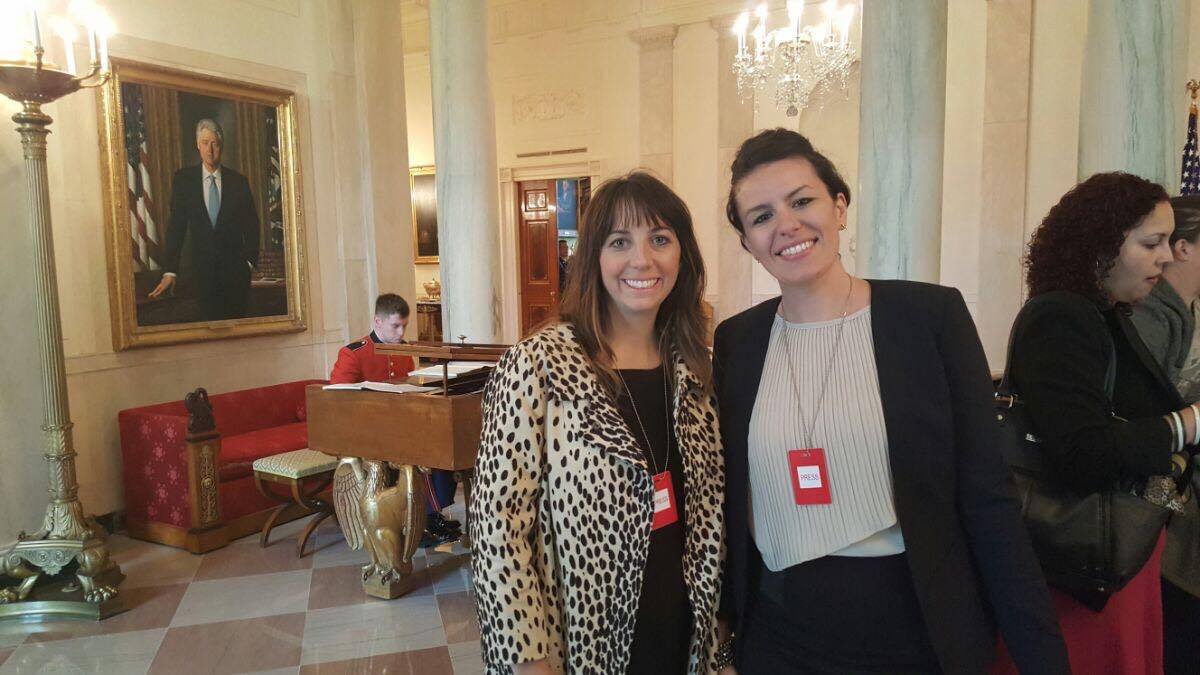By Drew Brooks
The Fayetteville Observer, N.C.
WWR Article Summary (tl;dr) Two military wives who started a small yet high quality handbag business now lead a team of 50 workers, including 35 military spouses who can make more than 600 handbags each week. The company called “R. Riveter” recently expanded its operations, opening a storefront in Bethesda, Maryland.
WASHINGTON
Cameron Cruse’s identity was “stolen.”
As a recent college graduate with a master’s degree in architecture, she had imagined the 9-to-5 job that awaited her. The steady salary.
Cruse had bought her wardrobe for the career ahead of her. Then the Army sent her and her husband to Camp Merrill, Georgia — home to the 5th Ranger Training Battalion and “not much else.
buy augmentin generic buy augmentin online no prescription
”
It was Cruse’s first experience of being picked up and moved by the Army. She felt betrayed.
“I thought that I’d been wronged,” she said. “I thought that my identity had been stolen.”
In Georgia, Cruse met her future business partner, Lisa Bradley.
Together, the two Army spouses struck out on their own path, creating R. Riveter, a company that specializes in high-quality handbags.
On Tuesday, Cruse spoke on behalf of military spouse entrepreneurs everywhere as part of a military family forum at the Association of the U.S. Army annual meeting.
“It’s challenging,” she said of military spouse entrepreneurship. “Most of the cards are stacked against us. But as entrepreneurs and aspiring entrepreneurs, there’s no time to think about that.”
R. Riveter began in Georgia, but the business took off after it and the spouses relocated to the Fort Bragg area.
Based in Southern Pines, the business caught the attention of ABC’s “Shark Tank” and was featured on the show in 2016. That exposure has led to incredible growth, Cruse said.
In the beginning, the two company founders would be lucky if they could make five handbags each week, she said.
Today, they lead a team of 50 workers, including 35 military spouses, who can make more than 600 handbags each week. And R. Riveter recently expanded its operations, opening a storefront in Bethesda, Maryland.
Cruse said R. Riveter was using its success to help others.
“We provide mobile income to military spouses all across the country, so what that means is they can take their job with them as the military moves them,” she said. There are 1,000 spouses on a list waiting to work for the organization.
“There’s no shortage of military spouses,” Cruse said.
Cruse said that when she and Bradley started R. Riveter, they were on their own.
“No one was coming to save us,” she said.
But that was the opposite of the message that was sent Tuesday, as a number of military and business leaders explicitly stated
that spouses were no longer isolated.
Amanda Patterson Crowe, with In Gear Career, advocated for military spouses to network among themselves and within their communities.
Holly Petraeus, assistant director for service member affairs at the Consumer Financial Protection Bureau, explained how the government was working to provide better financial readiness training to new troops, transitioning service members and their families.
Military leaders explained education and career opportunities through military programs.
Military spouses are often underemployed or unable to find jobs in their preferred field because of where they live.
But Cruse said they also have a “ton of perseverance and a ton of grit.” And that gives them a leg up.
R. Riveter started as “two of us in a garage with a really big idea,” she said. “Every step was a battle of willpower.”
“Now we are right where I imagined,” Cruse said. “The problem now is shifting the goal to something bigger.”














































































































































































































































































































































































